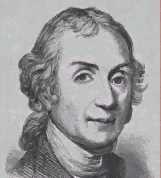

I stand in need of liberty myself an I wish that every creature of God may enjoy it equally with myself.
If I be in company with truth and good sense, I always think myself in good company, whosoever else may be of the same party.
I esteem it a singular happiness to have lived in an age and country, in which I have been at full liberty both to investigate, and by preaching and writing to propagate, religious truth. (A claim Priestley made in his memoirs, 1787, four years before the Birmingham riots.)
Should free inquiry lead to the destruction of Christianity itself, it ought not on that account to be discontinued: for we can only wish for the prevalence of Christianity on the supposition of its being true. If we Dissenters be not friends to free enquiry in its utmost extent, and if we do not give the most unbounded scope to reason in matters of religion, we shall be absolutely inexcusable.
The most fearless integrity, and the truest simplicity of language, become Christians, who wish to know and to propagate the truth.
Certainly if men be deceived, they are not instructed. All that we can gain by ambiguous language is to make our hearers imagine that we think as they do.
But this is so far from disposing them to change their opinions, or to lay aside their prejudices, that it can only tend to confirm them.
How glorious it would be to the heads of any establishment to require nothing of the members of it besides the profession of our common Christianity, and to leave all particular opinions to every man's own conscience.
Every cause of unpleasing contention would then be removed, and one of the most popular objections to Christianity would be removed, namely the want of harmony among Christians.
I firmly believe there is a wide superintending providence, with respect to all sects and parties into which the Christian name is broken, and I believe there is not one of them without its use in the whole scheme.
This rapid progress of knowledge, which, like the progress of a wave of the sea, of sound, or of light from the sun, extends itself not this way or that way only, but in all directions, will, I doubt not, be the means, under God, of extirpating all error and prejudice, and of putting an end to all undue and usurped authority in the business of religion, as well as of science..
No man can be happy who lives to himself; but true happiness consists in having our faculties wholly engrossed by some worthy object, in the pursuit of which the strongest and the best of our affections have their full play, and in which we enjpy all the concistent pleasures of our whole nature.
If any set of duties shine with peculiar lustre, and make a greater figure than the rest, in our holy religion, they are those of humanity and compassion.